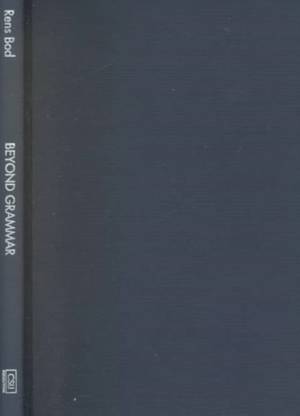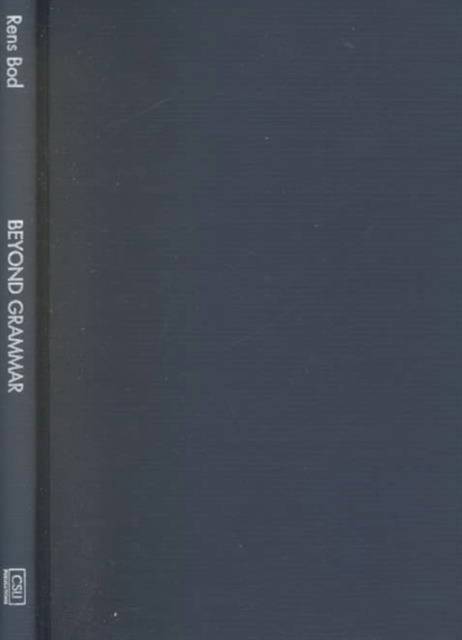
- Afhalen na 1 uur in een winkel met voorraad
- Gratis thuislevering in België vanaf € 30
- Ruim aanbod met 7 miljoen producten
- Afhalen na 1 uur in een winkel met voorraad
- Gratis thuislevering in België vanaf € 30
- Ruim aanbod met 7 miljoen producten
Zoeken
Omschrijving
During the last few years, a new approach to linguistic analysis has started to emerge. This approach, which has come to be known under various labels such as 'data-oriented parsing', 'corpus-based interpretation' and 'treebank grammar', assumes that human language comprehension and production works with representations of concrete past language experiences rather than with abstract grammatical rules. It operates by decomposing the given representations into fragments and recomposing those pieces to analyze (infinitely many) new utterances. This book shows how this general approach can apply to various kinds of linguistic representations. Experiments with this approach suggest that the productive units of natural language cannot be defined by a minimal set of rules or principles, but need to be defined by a large, redundant set of previously experienced structures. Bod argues that this outcome has important consequences for linguistic theory, leading to an entirely new view of the nature of linguistic competence.
Specificaties
Betrokkenen
- Auteur(s):
- Uitgeverij:
Inhoud
- Aantal bladzijden:
- 182
- Taal:
- Engels
- Reeks:
- Reeksnummer:
- nr. 88
Eigenschappen
- Productcode (EAN):
- 9781575861517
- Verschijningsdatum:
- 28/10/1998
- Uitvoering:
- Hardcover
- Formaat:
- Genaaid
- Afmetingen:
- 152 mm x 229 mm
- Gewicht:
- 430 g

Alleen bij Standaard Boekhandel
+ 118 punten op je klantenkaart van Standaard Boekhandel
Beoordelingen
We publiceren alleen reviews die voldoen aan de voorwaarden voor reviews. Bekijk onze voorwaarden voor reviews.











